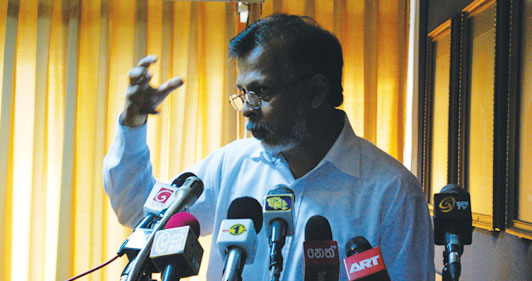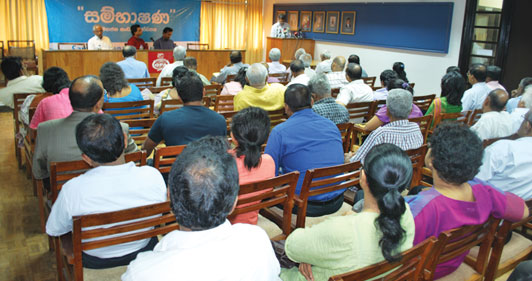“Insider dealing exists in every market, no matter how developed or undeveloped they are. No regulatory regime can eradicate it. In Sri Lanka insider dealing was rampant and obvious. Not only that people were even openly boasting about it but they were being made to look like heroes. The appearance of impotency of the regulator and the open knowledge of conflicts of interest in regulatory bodies made it worse.”
So said former Director-General of the Securities & Exchange Commission (SEC), Arittha Wickremanayake in his opening remarks at the TISL Sambhashana discussion on ‘Insider trading at the Stock Market’ held at the OPA auditorium on 30 May 2012.
“The objective of regulation is to deter insider trading to the greatest extent possible. To build fences to make it more and more difficult and expensive to do it. To prosecute and punish those who are foolish to flaunt it get caught,” he added.
Pointing out that the market had completely failed in terms of credibility he said that no serious investor participated in it. “It was the survival of those who had the least in terms of scruples. No matter what one says, it was heading for disaster, which some of us predicted when everyone thought that manipulation could keep the markets buoyant.”
Saying that “now the chicken have come to roost,” he posed the question “where do we go from here?”
He thought it was a good sign that the regulator appears to have sent a strong message, especially after the recent NSB (National Savings Bank) crisis.
“One of the main requirements of good regulation is that the regulator should be firm and decisive,” he stressed. “This message that has now being sent will make people think twice about blatantly engaging in market practices, whether they are insider dealing or market manipulation in general. Unfortunately, our markets are so illiquid that the large players in the market seem to be able to drive the market down by staying away from the market each time the regulator takes action. The government then gets excited about it and unravels what the regulator has done to make the index move up again. Never happens but they make this mistake over and over again.”
He hoped that the regulator will not give into this blackmail this time. “It is also important that the media also gets wise to this ruse, and does not join the chorus that regulation is driving the market down. It is important to remember that these persons are not doing the public a favour by trading: they make money at the expense of the unsophisticated investor”.
He also opined that the primary reason for the market to suffer from these ills is the absolute sense of public apathy. This is because of the lack of awareness of the effects of insider dealing and manipulation. “Most people think that this merely some rich people making money at the expense of their own. This fallacy must be addressed through public awareness, especially in the Sinhala and Tamil media.”
Stressing that insider trading and market manipulation have an adverse effect on the public in general, he said that while insider trading hurts every person who invests in the stock market, market manipulation is worse.
Quoting the NSB/TFC deal as an example, he said that the sale of shares to the NSB at prices nearly twice that of the markets price affects the credibility of the NSB and raises questions about the level of competence of its management ie the directors, the possibility that it could be used as a tool for some people to make money, and its economic soundness.
“Don’t forget that it was activity similar to this that led to the collapse of Ceylinco and all other finance companies before them. The market manipulation where junk stock was dumped on the EPF is equally bad. Who pays for this? It’s all of us who have contributed to the pension funds hoping for a decent return one day. Every bad deal results in a lower return on our pension funds,” he concluded.


